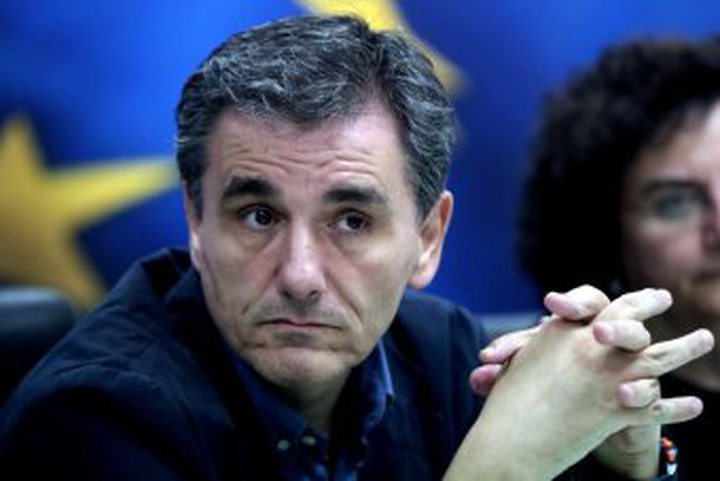Greece Arrives at Last-Chance Talks Empty-Handed

Greece's new finance minister Euclid Tsakalotos
Athens has been given a final chance to present a new reform plan to its eurozone partners — even though their willingness to accommodate it has all but evaporated following Greece’s emphatic rejection of previous bailout terms in Sunday’s referendum.
But the Greeks turned up empty-handed to the meeting of finance ministers in Brussels on Tuesday, which precedes a summit of EU leaders in the evening. The lack of a plan shocked the assembled finance ministers, officials said, angering several in the room.
Another eurozone official said the Greeks would instead present their new plan on Wednesday.
The official added the eurogroup of finance ministers would not remain in Brussels to consider the new Greek proposal on Wednesday. Instead, it will be submitted to Greece’s three bailout monitors — the European Commission, European Central Bank and International Monetary Fund — for evaluation before another eurogroup is called.
Markets are delivering mixed messages on Greece. The euro is down 1 per cent versus the dollar, as is sterling, suggesting the move is more about dollar strength. Investors are pouring into Bunds, pushing 10-year yields down 11 basis points to 0.66 per cent. And yet yields of equivalent maturity Italian and Spanish paper are a dozen basis points or so lower, too.
Even before the latest development, Greece’s eurozone partners had expressed deep scepticism about whether the country’s leftwing government could be trusted as a negotiating partner.
Wolfgang Schäuble, Germany’s finance minister, stuck to Berlin’s tough line as he arrived at the meeting looking grim-faced: “We don’t have a [financing] programme [for Greece] any more. After the Greek referendum we are waiting in suspense at the eurogroup and at the eurozone summit for what the Greek government has to propose.”
He ruled out assisting Greece to stay in the eurozone without a proper financing programme, saying: “Without a programme there’s no possibility of helping Greece in the framework of the eurozone.”
But he made clear that the EU was ready to help the country — a reference to the mooted plans for broader EU as opposed to eurozone emergency assistance.
The European Commission and the French government struck a more emollient note, saying they would work hard to prevent Greece’s exit from the single currency.





